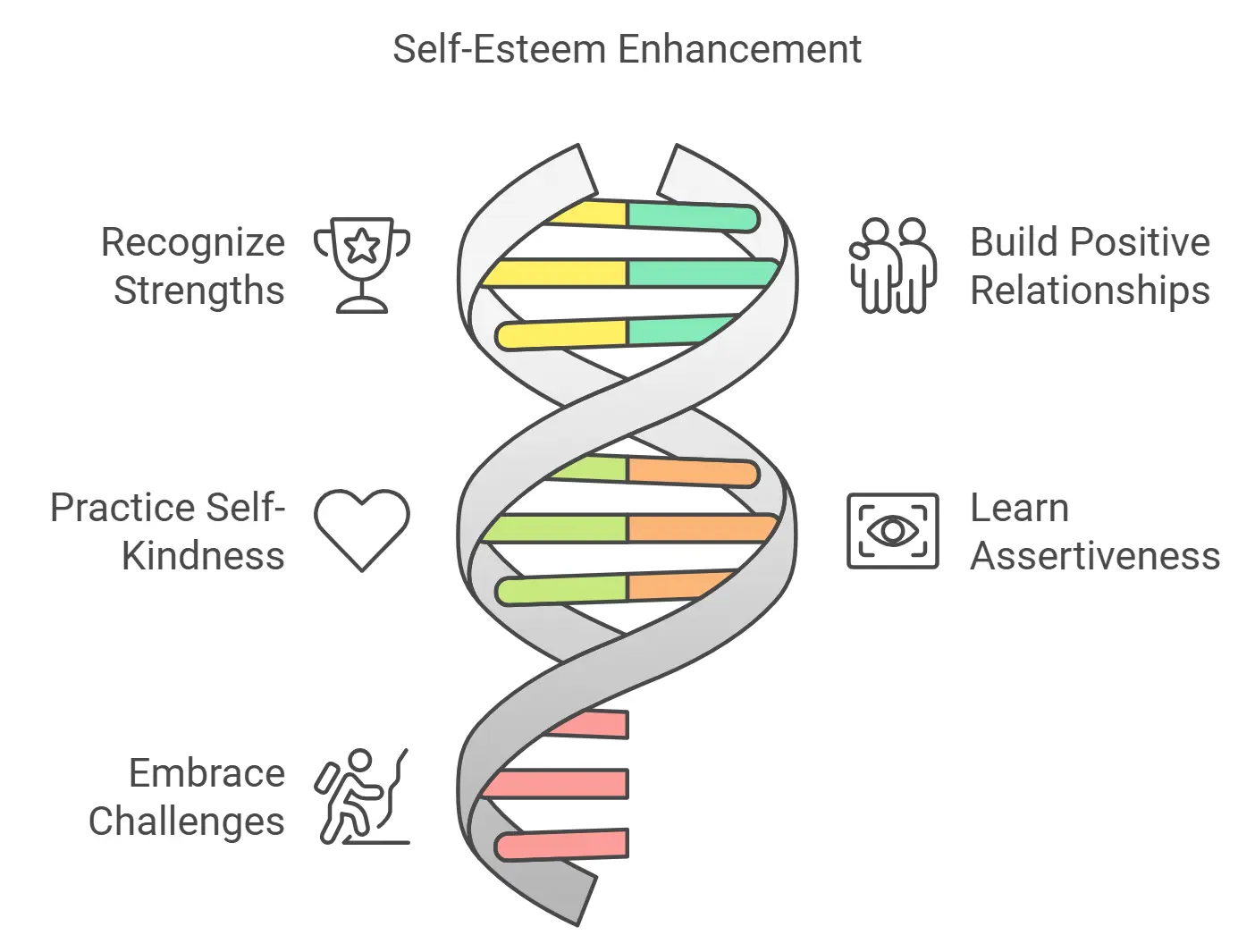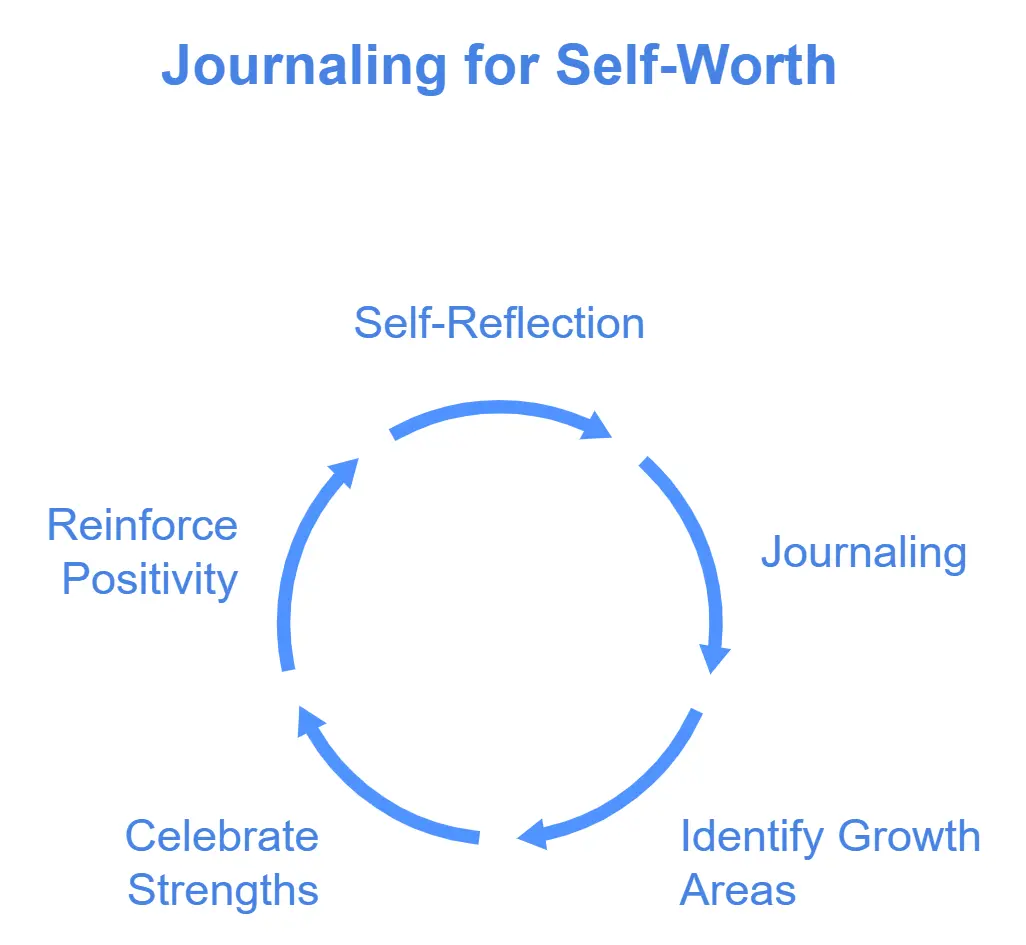Boost Your Self-Worth: A Guide to Building Confidence and Happiness

Have you ever felt weighed down by self-doubt, questioning whether you’re enough? You’re not alone. Research from the American Psychological Association (APA) shows that self-worth is shaped by experiences, thoughts, and social interactions. The good news? It can be strengthened.
As someone who has studied self-development and worked with individuals on confidence-building, I’ve seen how small shifts in mindset can create lasting change.
Learning to appreciate yourself without external validation is not about achieving perfection, it’s about changing the way you see yourself.
What is Self-Worth?
Self-worth is the foundation of confidence. Dr. Kristin Neff, a leading self-compassion researcher, describes self-worth as an internal belief. A belief that we deserve love, respect, and happiness—independent of achievements or others’ opinions.
Many factors influence self-worth. These include beliefs, thoughts, feelings, relationships, and personal experiences. These factors can either build us up or bring us down, depending on how we interpret them.
For instance, believing in your abilities can improve your internal worth, while doubting yourself due to negative relationships can harm it. Recognizing these influences is the first step in taking control of your self-worth.
What happens in childhood and how we interact with important people can shape our self-worth. For example, positive reinforcement from parents can create a strong sense of self-worth, while constant criticism can make us doubt our value.
To reframe past negative experiences, try focusing on what you learned from them and how they made you stronger today. Understanding these influences helps build healthy self-worth and allows us to grow beyond the limitations they may have created.
Subscribe to Create Higher Vibrations!
Get Inspiration and Practical advice straight to your inbox.
Negative self-talk is a major barrier to self-worth. According to Dr. David Burns, a cognitive-behavioral psychologist, negative thoughts distort reality and reinforce self-doubt.
Recognizing these thoughts and challenging them is key to shifting your mindset. For example, if you think, ‘I’m not good enough,’ try reframing it to, ‘I am doing my best, and that’s enough.’
Challenge these thoughts to see if they are facts or just fears. Often, they are unfounded fears and do not reflect reality. By consistently challenging these negative thoughts, you can rewire your thinking and develop a more positive self-view.
Be kind to yourself and do activities that highlight your strengths. Setting boundaries is also key. Setting boundaries is not about pushing people away, it is about protecting your well-being and ensuring space to grow.
Learning to say no when needed is a powerful way to reinforce your self-worth, showing yourself and others that your needs matter.
Building self-worth takes time and effort. It involves practicing self-kindness, finding supportive friends, and focusing on growth. Self-worth is a journey that involves continuous learning and reflection. Each small step you take towards valuing yourself contributes to a more stable and positive sense of who you are.

Key Factors Affecting Self-Worth
Self-worth changes based on many factors, including beliefs, thoughts, feelings, and mental well-being. Each of these factors plays a significant role in shaping how we view ourselves. Let’s look at what influences it in more detail:
Understanding these factors is like putting together pieces of a puzzle. It takes time, and that is okay. Each piece you add helps create a clearer picture of your value, allowing you to build a stronger foundation for your self-worth.
How to Assess Your Self-Worth
To understand your self-worth, ask yourself these questions:
Answering these questions can help you understand your self-worth. Journaling your answers can provide deeper insights and help track your progress over time. Try prompts like, ‘What are three things I value about myself today?’ or ‘How did I overcome a recent challenge?’ to get started.
Consider keeping a journal where you reflect on positive experiences and challenges. Writing down your thoughts can help clarify your feelings and provide evidence of your growth over time.
Self-reflection is an essential part of building self-worth. By understanding where you stand, you can identify areas for growth and celebrate your strengths.
Journaling not only helps in reflection but also in reinforcing positive beliefs about yourself. Make it a regular practice to write about your successes, no matter how small they seem.

Why Self-Worth Matters
High self-worth brings confidence. It affects how we interact with others and how we set boundaries. People with high self-worth take risks, set healthy boundaries, and pursue their dreams. They understand that their value is not tied to the outcome of their efforts but rather to who they are as individuals.
A 2017 study found a link between positive self-worth and well-being. Healthy self-worth positively affects all areas of life, including relationships and happiness.
When you believe in your worth, you are more likely to engage in behaviors that support your health and happiness. You prioritize your needs, pursue goals that matter to you, and surround yourself with supportive people.
Signs of Low Self-Worth
Low self-worth often leads to fear of failure, difficulty accepting praise, and a focus on weaknesses. It can make us feel undeserving of love or happiness, causing us to settle for less or avoid opportunities.
People with low self-worth may shy away from challenges because they fear they will fail or that they are not capable.
Research from the National Institute of Mental Health (NIMH) shows that low self-worth is strongly correlated with anxiety and depressive disorders. However, building self-compassion and self-care routines can help disrupt these negative cycles.
For example, try a simple breathing exercise, breathe in for four counts, hold for four counts, and exhale for four counts. Alternatively, reach out to a trusted friend to talk about how you’re feeling.
It also takes consistent effort and support. Building self-worth is a gradual process, but with each small positive step, the negative cycle can be disrupted.
Effective Ways to Improve Self-Worth
Dr. Sabrina Romanoff, PsyD, suggests ways to improve self-worth:
Understanding Self-Esteem
Self-esteem refers to how we view ourselves. A healthy sense of self-esteem helps us handle challenges and setbacks. Low self-esteem creates negativity, making it hard to face obstacles and grow. Building self-esteem is about changing the way we see ourselves and valuing our abilities.
Cultivating healthy self-esteem means challenging negative beliefs, recognizing strengths, and building positive relationships. It’s like gardening, you remove self-doubt and plant self-respect and love.
Just like a garden, self-esteem needs regular care and attention. With time and effort, you can nurture it into something strong and resilient.

Practical Tips to Boost Self-Esteem
Here are techniques to boost self-esteem:
Conclusion
Your worth isn’t something you have to prove—it’s something you already have. The real challenge is believing it. Every time you choose self-kindness over self-doubt, you strengthen your confidence. You don’t need permission to value yourself.
Just start.


